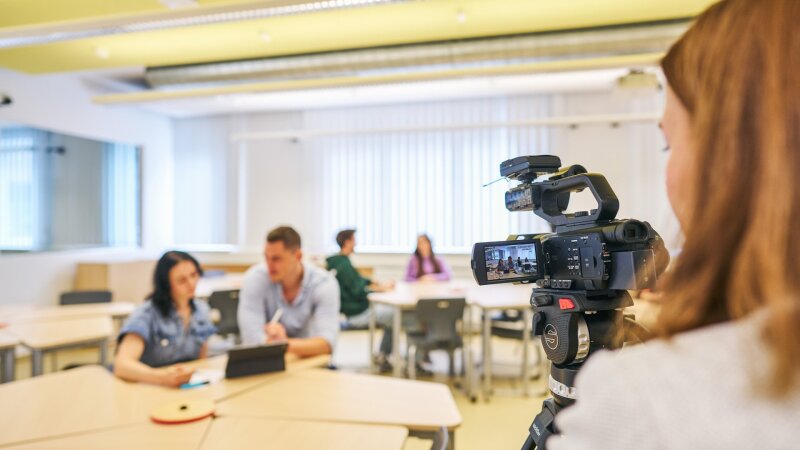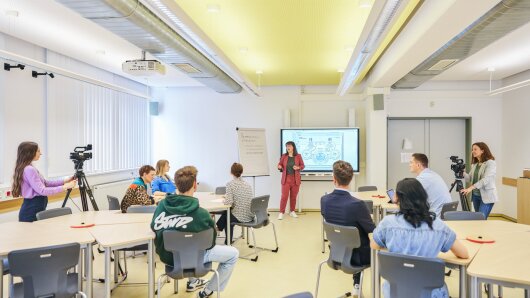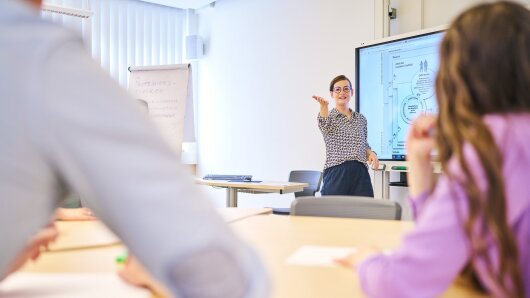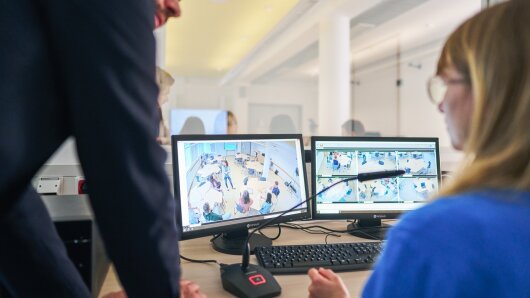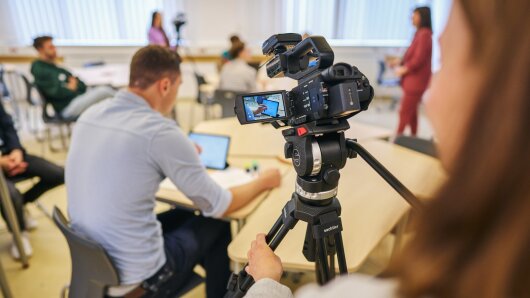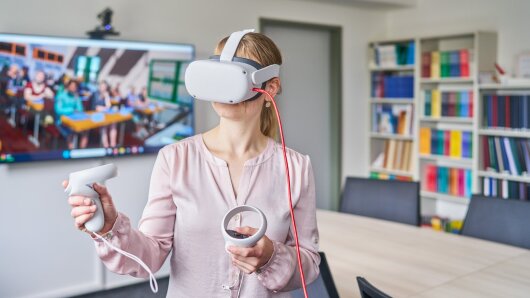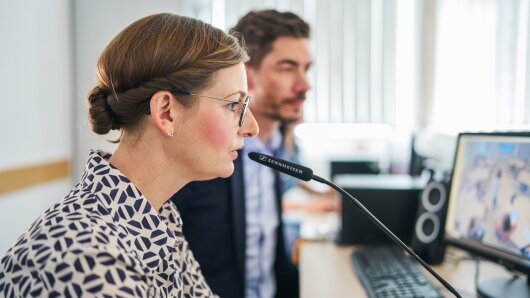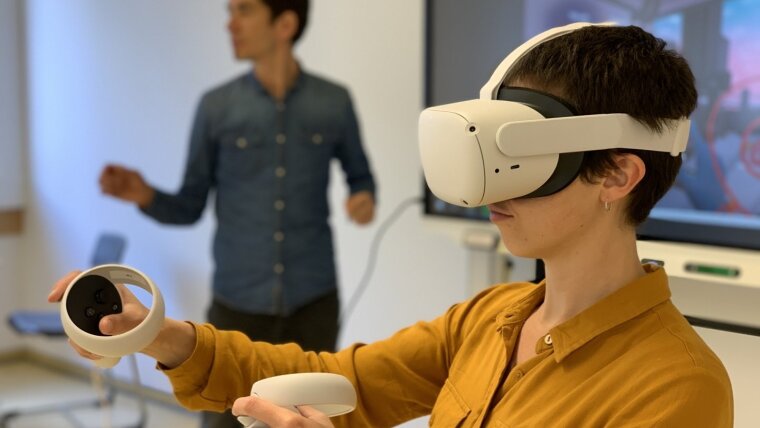
Research profile: „Evidence for practice“
In our research projects we address school related issues and investigate classroom practices and combine empirical findings of research on teaching and learning with the development of hands-on material for professional teacher learning and teacher education. Besides the further development of educational theory and the use of versatile methodological approaches, our main emphasis is a change to evidence-based educational practice. As a part of our research we use and develop media-based tools and innovative teaching and learning methods. These tools are also introduced in our university teaching.
Our special interests of research are:
- Video-based research on teaching and learning (e.g., teacher-student interaction, classroom communication, student learning and motivation)
- Use of videos for professional development and teacher education
- Methodological approaches of video analysis
- Designing effective practical oriented arrangements for teacher education during field-experience (e.g., mentoring, peer-coaching and video-based reflection)
- Effectiveness of teacher training and professional development
- Educational theory of American Pragmatism
Videografie im LTL:S
Image: Anna Schroll-
Teaching quality of successful schools. A document analysis of schools from the German School Award (DokU-20I22)
The research project investigates the teaching quality of the applicant schools of the German School Award. Hereby, a document analysis is used to examine, e.g. the scope and the quality of the applications.
-
Perceiving and promoting participatory teaching cultures in digital learning communities (PUdL)
Project period: 2023 - 2026
The sub-project "PUdL - Perceiving and promoting participatory teaching cultures in digital learning communities" aims to develop and test digitally supported learning modules for a participatory teaching culture. In this context, an online portal is to be created or used in which scientifically tested teaching modules are implemented. Among other things, videos, podcasts, apps and self-learning tools will be used, which are dedicated to the topics of "learning-promoting classroom communication", "self-responsible learning" and "feedback culture" in the classroom. The digital learning modules will be tested in an iterative process and in cooperation with representatives of school practice and various state institutes and scientifically evaluated as part of a design-based research approach. The implementation of the participatory teaching approaches will be scientifically monitored at selected partner schools.
-
Professionalization with videos on interaction quality in the classroom (PROVID)
In cooperation with the University of Kassel Universität Kassel (Prof. Dr. Frank Lipowsky)External link videos of lessons in various subjects were produced at primary and secondary schools throughout Germany. The aim of the project is to use selected sequences of good practice examples to address teaching quality as part of initial and in-service teacher training and to make them available in digital form with additional materials (scientific sources, teaching materials) on a teaching and learning platform for teacher training.
-
Dialogic teaching in further education (T-SEDA)
Period: since 2019
The Dialogic Teaching project is conducted in close cooperation with the Teacher-SEDA team at the University of Cambridge. While T-SEDA aims to develop resources for professional learning about dialogic teaching, our project investigates the perception of dialogic classroom communication from the perspective of teachers, students and external observers. For this purpose, the Dialogic Teaching Questionnaire (DTQ) was developed and empirically tested.
-
Data-supported professionalization right from the start in the Jena model of teacher training (DaProfil)
project period: 2025
The project „Zukunftsvertrag“ (ZuV) examines affective-motivational aspects, particularly in relation to teaching. With the procedure of interviewing student substitute teaches qualitative data are generated and analysed. The study focuses on recording the learning experiences made during the practical semester from the perspective of the student substitute teachers and beyond at schools, as well as the learning success with regard to the development of educational science knowledge, e.g. in the area of classroom management, interaction with pupils, etc.. In this context student substitute teachers in the Jena model are included.
An overview of the completed research projects of the chair can be found on this page.
Current topics in the Learning to Teach Lab: Science (LTL:S)
In the Learning to Teach Lab: Science (LTL:S), we develop simulation-based training courses and conduct intervention studies on the topics of classroom communication and teaching quality. Below you will find an overview of the current topics on which studies are currently being conducted within the framework of LTL:S.
